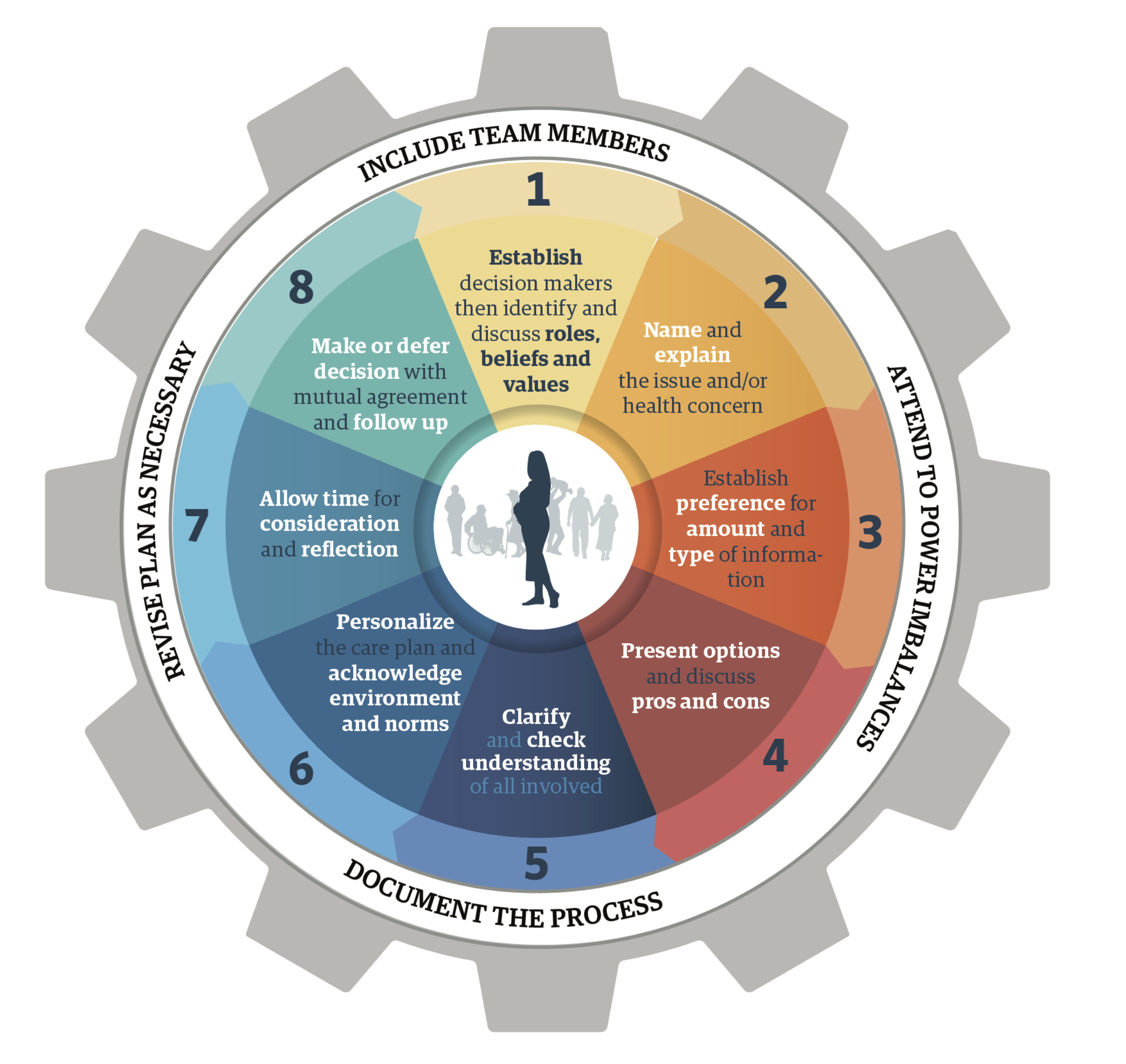
UBC Health Students Learn Interprofessional Shared Decision Making in Dialogue and Decisions IPE Course
The Dialogue and Decisions: Advancing Person-Centred Health Care interprofessional activity addresses both the value and complexity of human interaction around decisions in health care. Courtney Broten is a Clinical Assistant Professor in the UBC Midwifery Program, and one of the co-founders of this flexible online course for health professional learners at UBC that focuses on person-centred and interprofessional shared decision making. UBC Health sat down with Courtney to discuss how UBC Health is creating and promoting innovative and interactive collaborative health education opportunities to help students to be “team-ready” when they graduate.
Shared decision making (SDM) is important, especially when there is more than one reasonable option for screening or treatment decisions. SDM gives space to discuss goals and concerns, and allows for collaboration so that multidisciplinary groups of health care providers, and the patient, can create a health care plan that is individualized for each patient. Including family or community consultation in the SDM process engages the patient’s support people who may also be affected by the decision.
“Shared decision making gives (students) the skills they need for practice. A lot of conflict within health professions stems from a lack of understanding around role, scope and responsibility. The tension is because of confusion about overlapping and divergent professional responsibilities.” Courtney Broten added.
Effective person-centred care requires leadership, skillful communication, conflict management, and teamwork among providers of all practices and disciplines, as well as partnerships with people. “The biggest challenge to patient safety and reason for poor outcomes is a breakdown in communication between providers” explains Courtney.
Using maternity care cases for decision making, health professional students experience relationship building in an open, safe, interprofessional online learning environment. Through best practice videos, case-based and self-reflection exercises, students simulate their management of urgent and non-urgent care planning situations. Students then have discussions around improving patient safety by addressing and mitigating conflict, focusing on interprofessional collaboration and communication, and healthy team functioning.
The course runs annually and has 30 hours of course work. The next offering is scheduled to run March 2 to April 6, 2020, ending with a video-based simulation exercise on April 6th. To students interested in participating Courtney says, “We’ve tried to make this course as accessible to learners as possible while gaining exposure to interprofessional problem-solving.” Students can register for this course on the IPE passport.



